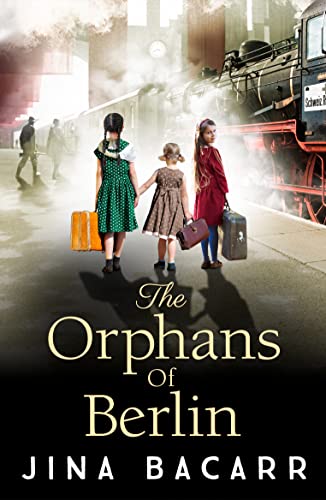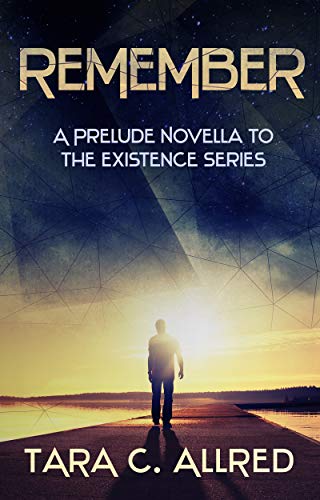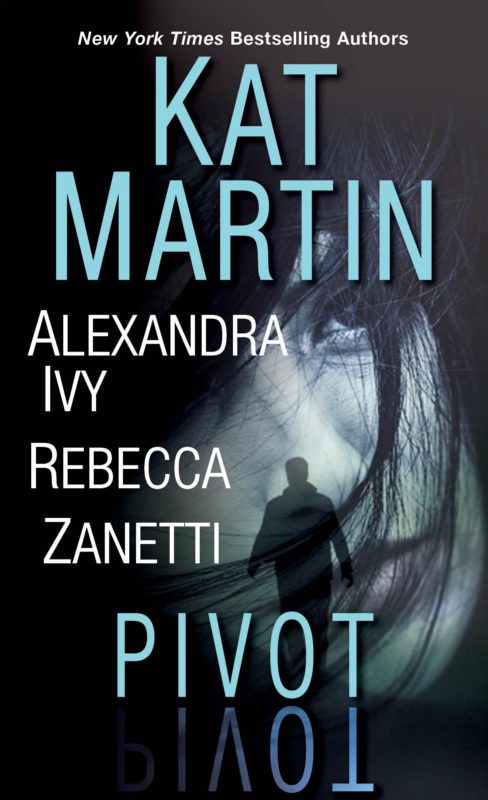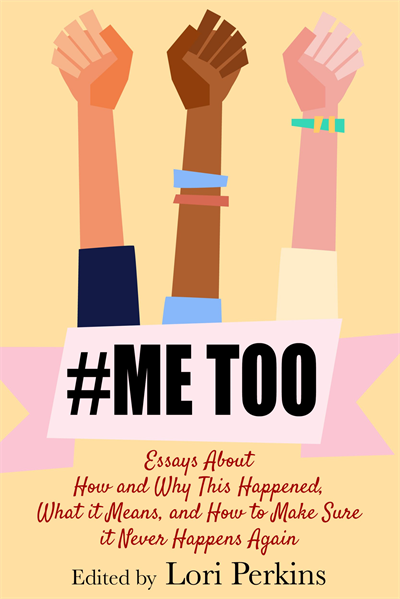Do You REALLY Want To Know
February 20, 2014 by A Slice of Orange in category Archives tagged as critiques, Mona Karel, Saluki, stronger writingWhen I’m not writing, or thinking about writing, or begrudgingly cleaning the house, my life is full of dogs. On occasion I’ll judge dogs, and much of the time I’m expected to produce a written critique of the dogs I judged. Some judge’s critiques are works of art, describing the entry in flights of fancy and glowing terms. The better critiques offer a description in succinct terms, referring to
hallmarks of quality in the breed.
On occasion I’ve been asked to evaluate a dog somewhere other than a show, all too often at a gathering of friends where more attention is paid to sampling the host’s wine and beer selection than in depth discussion of dog structure and type. Even when I warn that a request for an honest appraisal will bring that very thing, they insist. Sometimes this can lead to that in depth discussion. Sometimes it heads down an entirely different path. Such as the time a dog of a new breed was paraded in front of me. I turned to the beaming owner and asked if every dog in the breed had a weak rear, since I hadn’t seen a good rear structure yet, including his dog.
He was not amused.
Often when judging writing contests I’ll come across an entry not ready to see the light of day. Since we don’t know the background of the entrant, and we don’t wan to discourage any budding confidence they might have in themselves as writers, any critiques written must be worded carefully. On occasion the story I pointed out as derivative and lacking any semblance of originality ends up published a few months later, with very few changes.
Publishing is a strange endeavor, never moreso than when when we try to make sense of it.
Right now I have two works in progress on my Kindle, sent from writing friends for a beta read. The friends have on occasion read for me, and have offered an ultimate expression of professional friendship by being brutally honest. Hate or love my work, they pull no punches.
Nor would I give them any less than my full honesty. Sure, I’ll temper it with soft words of praise. There are only so many ways one can say “I gave up before page thirty, I was so bored,” but one can attempt to find the actual best place to start the book. Far better for an earlier reader to reveal these plot weaknesses than for an editor to send the book back with a vague “fix it and we’ll look at it again” rejection.
With both of these writers I know any comments will be taken at face value, with no search for hidden messages. We separate the writer from the writing, which is healthy for all concerned, and something all of us need to remember when asking for or performing critiques. Don’t ask unless you really want to know, and learn to use that feedback to strengthen not only your own work but also your ability to evaluate other writer’s work.
 |
| Sharing a special moment. |
That Pesky Internal Editor
August 19, 2013 by A Slice of Orange in category Archives tagged as 1959, editing, Mona Karel, Sound of MusicI think we’ve all laughed along with the t-shirt motto: I’m Secretly Correcting Your Grammar. And nodded because, yes, we are. We each have our own particular misuse or phrase that acts like fingernails on a blackboard. For me it’s Who/Which/That. I find myself inserting “Who” for “That” while following a conversation, or listening to a television news personality.
We can also be distracted by titles or weak plot points. Most recently I remember a title referring to the hero as soldier coming home. Lovely thoughts. Except this particular hero was a Navy SEAL, as in SAILOR. Somehow this faux pas made it past multiple editors as well as an author who has in the past shown excellent military knowledge.
Maybe we’ve become experts at catching plot anomalies such as horses changing color (or their riders shifting from in the saddle to on the ground to in the saddle without ever actually mounting or dismounting) I remember one love scene where the hero unbuttoned the heroine’s blouse then removed her dress…guess she really wanted to cover up.
Sometimes that editor doesn’t even show up when we first read or hear something that will one day bother us. I’m thinking about “Sound of Music” which I saw when it came out at the drive-in theatre (remember those?) and subsequently wore out the sound track on my record player. Sometimes while I’m gardening or working with the dogs, I’ll break out into show tunes, since there’s no one around to hear me. I was singing “(How Do You Solve a Problem Like) Maria,” trying to sing all parts myself since the dogs aren’t great at following a tune.
“She climbs a tree and scrapes her knee. Her dress has got a tear. She waltzes on the way to mass and whistles on the stair. And underneath her wimple she has curlers in her hair. I’ve even…” Wait a minute? Curlers in her hair? For a young woman from a small village who intends to be a nun? Where would she buy curlers and why would she spend her money in that fashion? For that matter, if she’s a novitiate, wearing a wimple, she’s not going to have enough hair to wear curlers. Certainly Julie Andrews wasn’t showing off flowing locks of hair in the movie.
Minor? Perhaps, in this instance. After all the movie, the music, the story all combined to enchant us to such an extent we probably wouldn’t question the curlers. I certainly didn’t until, well let’s see, Sound of Music came out in 1959 and it’s…ahem. Well, anyway…
We’d all like to hope our characters are so compelling readers will ignore minor editing issues. Except what’s minor when it comes to editing? A character who despises coffee in the first chapter and is swilling down espressos in the second half of the book, with no logical explanation for the change in taste. Although come to think of it, that is an interesting plot point. Hmmmm
Sorry for the digression, must be too much coffee. Or maybe not enough? Of course we’d rather be known for scintillating dialogue and compelling characters instead of unintended humor due to poor editing. And we really don’t want to dump a confusing mess on our editors, especially if we want to keep sending them books.
This problem has many solutions including beta readers, critique partners, and people you pay to give your book a cold read. Just be sure whoever has input on your story cares enough about you to be brutally honest when necessary. Better them than someone reading your story after publication.
Happy writing
Monica Stoner w/a Mona Karel
http://mona-karel.com/
A Thought or two on Loglines and Mission Statements
July 19, 2013 by A Slice of Orange in category Archives tagged as MFRW, MFRW Summer Camp, Mona KarelNow how in the world do loglines relate to mission statements? It kind of surprised me when I realized the connection.
For a bit of background, I was participating in and helping with MFRW‘s great Summer Camp (check out Linda Mc Laughlin’s Blog for more information) Kayelle Allen asked me to take on a logline forum, since I do enjoy distilling a book down to twenty five words or less. On the same weekend I was working with a club on their ByLaws, starting with the Mission Statement.
A Mission Statement is a declaration of an organization’s purpose. Some are complex, conveying many thoughts; the best are direct and simple, describing the organization so clearly one has no doubt of their place in the world. Even better, these simple statements stick with us, and when we’re asked what that organization is all about, we have a clear answer.
What was that? A clear description. Direct. Simple. Something that will stick with us? Sounds like something else I’ve read about recently.
What do you think? Could the logline be the mission statement of our book?
When not pondering esoteric concepts, Monica writes and reads romance in various genres while living in the high desert wondering when or if it will rain.
http://mona-karel.com/
So Much of What I’ve Needed to Know, I’ve Learned From Books
April 19, 2013 by A Slice of Orange in category Archives tagged as Andre Norton, Elswyth Thane, Mary Stewart, Mona Karel, My Killer My LoveAnd comic books. Seriously. Long before I ever had a science class Superman explained water came from two parts hydrogen, one part oxygen and a lot of energy. Come to think of it, that’s about all I ever did understand about chemistry.
Albert Payson Terhune taught me about the love between dog and person, and the superhuman qualities of his Collies. Later years took a lot of the polish off his halo for me but brought an overwhelming appreciation for the value of hard work when writing. Good, bad, indifferent, that man put out the words. From Jack London I learned about the quest to do more and be greater, in dog or human. Walter Farley filled my head with misinformation about horse racing and stimulated the imagination of a horse crazy girl (and isn’t that a rare condition!)
Thanks to Bruce Catton and Elswyth Thane I understood more about the Civil War, the battles and the people involved. As well as the continued involvement of a patriotic family (Thane) and how involved some families with each other. From Laurie King I learned the not to be forgotten phrase “Cream of Man Soup” about trench warfare in France. All of these writers stimulated me to more research as I tried to understand the reasons for war. Yeah, good luck on that.
Andre Norton showed endless future possibilities and also the value of one small person staying the course in spite of all odds. A most valuable contribution to the growth of an insecure girl. Betty Cavanna and other writers of that ilk spoke to that insecurity and helped ease me into growing past.
All of these writers fed my love of words, with Rudyard Kipling bloating me on their power “We’re foot slog slog slog slogging over Africa…” and “The great gray green greasy Limpopo river.”
Then one day I read: “Nothing ever happens to me.” and was transported into the world of Romantic Suspense as penned by Mary Stewart, the master of subtle romance. Sure I read books about pillage and kidnapping and Alpha heroes. But I kept coming back to magnificently worded books with people simply doing their best. Add in Helen MacInnes and another dose of Andre Norton and I guess I could say a writer was born.
How is it for you? What writers kicked over your rock and sent the creative ants to work?
Monica Stoner, member at Large. Writing as Mona Karel, and working now on a sequel to My Killer My Love…hoping I can come up with an even better title
0 0 Read moreMake Your Own Luck
February 19, 2013 by A Slice of Orange in category Archives tagged as goals, Luck, Mona Karel, My Killer My Love, Teach Me to Forget, Writing GoalsMonica Stoner, Member at Large
There’s been a lot of discussion lately about the ‘luck’ intrinsic for success in the publishing world. And it sounds like a great discussion. Except, well…hogwash. Yeah, you heard me right, that’s pretty much a lot of bilge water emptying into the ocean. Sure there’s luck involved. Absolutely some writers just happen on to the right publisher, the right agent, at the right time. But, as Harry Stone (Night Court…remember him?) pointed out, he might have been on the bottom of the list of judges to appoint, but he was on the list. He had done the work and made the effort to qualify for that list.
By the same token, we can gag at the overwhelming popularity of writers whose books just aren’t that good, at least in our educated minds. We can point fingers at the lack of logic, or the grammar issues, but the fact is they’ve written those books, generally a lot of those books. And those books are what their fans want to be reading. While we’re stressing over the poor writing, they’ve written another book, and again it’s at the top of the Amazon rankings.
Maybe luck does have something minor part to play in readers enjoying their work. But luck has nothing to do with them producing that work. As much as we want to bow down to our muse, or curse the lack thereof, the relevant issue here is just plain hard work. They possess a work ethic that has them at the keyboard early and late, that doesn’t allow them to check e-mail or cruise Facebook until their pages are done, and their word count is met. Are they the best writers in the universe? Maybe, maybe not. But if quality of writing is based on the books which are written, and not those being mulled over in the mind of the writer…then yeah they probably are.
Okay, this is a bit of a whine since my work ethic is pretty much down the tubes. But I’m giving up complaining about luck, and even being envious of someone else’s ability to get things done. All of this produces artificial road blocks to accomplishing any sort of goal…and I’m getting a lot better at setting those goals. Who’s ready to start that journey of a million words with me???
I realize I’m late putting fingers on keyboard and sharing this month’s thoughts. If you have just a minute more I need to share my thoughts on the loss of a wonderful woman who believed in me when I didn’t always believe in myself. Simply said, be at peace Barbara. You touched so many lives.
Monica writes as Mona Karel
3 0 Read moreAffiliate Links
A Slice of Orange is an affiliate with some of the booksellers listed on this website, including Barnes & Nobel, Books A Million, iBooks, Kobo, and Smashwords. This means A Slice of Orange may earn a small advertising fee from sales made through the links used on this website. There are reminders of these affiliate links on the pages for individual books.
Search A Slice of Orange
Find a Column
Archives
Featured Books
REMEMBERED: A Prelude Novella to The Existence Series
One invention and two men hoping to change the way humans connect—through memory exchanges
More info →PIVOT
Three friends, each survivors of a brutal childhood, grew up together in foster care. Now as women, they’re fighting for their lives again.
More info →#Me Too
#MeToo: Essays About How and Why This Happened, What It Means and How To Make Sure It Never Happens Again
More info →SEAGROVE SECRETS
With Shayla Harrison's dangerous ex leaving rehab and headed her way, she needs to find a safe house and fast.
More info →Newsletter
Contributing Authors
Search A Slice of Orange
Find a Column
Archives
Authors in the Bookstore
- A. E. Decker
- A. J. Scudiere
- A.J. Sidransky
- Abby Collette
- Alanna Lucus
- Albert Marrin
- Alice Duncan
- Alina K. Field
- Alison Green Myers
- Andi Lawrencovna
- Andrew C Raiford
- Angela Pryce
- Aviva Vaughn
- Barbara Ankrum
- Bethlehem Writers Group, LLC
- Carol L. Wright
- Celeste Barclay
- Christina Alexandra
- Christopher D. Ochs
- Claire Davon
- Claire Naden
- Courtnee Turner Hoyle
- Courtney Annicchiarico
- D. Lieber
- Daniel V. Meier Jr.
- Debra Dixon
- Debra H. Goldstein
- Debra Holland
- Dee Ann Palmer
- Denise M. Colby
- Diane Benefiel
- Diane Sismour
- Dianna Sinovic
- DT Krippene
- E.B. Dawson
- Emilie Dallaire
- Emily Brightwell
- Emily PW Murphy
- Fae Rowen
- Faith L. Justice
- Frances Amati
- Geralyn Corcillo
- Glynnis Campbell
- Greg Jolley
- H. O. Charles
- Jaclyn Roché
- Jacqueline Diamond
- Janet Lynn and Will Zeilinger
- Jaya Mehta
- Jeff Baird
- Jenna Barwin
- Jenne Kern
- Jennifer D. Bokal
- Jennifer Lyon
- Jerome W. McFadden
- Jill Piscitello
- Jina Bacarr
- Jo A. Hiestand
- Jodi Bogert
- Jolina Petersheim
- Jonathan Maberry
- Joy Allyson
- Judy Duarte
- Justin Murphy
- Justine Davis
- Kat Martin
- Kidd Wadsworth
- Kitty Bucholtz
- Kristy Tate
- Larry Deibert
- Larry Hamilton
- Laura Drake
- Laurie Stevens
- Leslie Knowles
- Li-Ying Lundquist
- Linda Carroll-Bradd
- Linda Lappin
- Linda McLaughlin
- Linda O. Johnston
- Lisa Preston
- Lolo Paige
- Loran Holt
- Lynette M. Burrows
- Lyssa Kay Adams
- Madeline Ash
- Margarita Engle
- Marguerite Quantaine
- Marianne H. Donley
- Mary Castillo
- Maureen Klovers
- Megan Haskell
- Melanie Waterbury
- Melisa Rivero
- Melissa Chambers
- Melodie Winawer
- Meriam Wilhelm
- Mikel J. Wilson
- Mindy Neff
- Monica McCabe
- Nancy Brashear
- Neetu Malik
- Nikki Prince
- Once Upon Anthologies
- Paula Gail Benson
- Penny Reid
- Peter Barbour
- Priscilla Oliveras
- R. H. Kohno
- Rachel Hailey
- Ralph Hieb
- Ramcy Diek
- Ransom Stephens
- Rebecca Forster
- Renae Wrich
- Roxy Matthews
- Ryder Hunte Clancy
- Sally Paradysz
- Sheila Colón-Bagley
- Simone de Muñoz
- Sophie Barnes
- Susan Kaye Quinn
- Susan Lynn Meyer
- Susan Squires
- T. D. Fox
- Tara C. Allred
- Tara Lain
- Tari Lynn Jewett
- Terri Osburn
- Tracy Reed
- Vera Jane Cook
- Vicki Crum
- Writing Something Romantic
Affiliate Links
A Slice of Orange is an affiliate with some of the booksellers listed on this website, including Barnes & Nobel, Books A Million, iBooks, Kobo, and Smashwords. This means A Slice of Orange may earn a small advertising fee from sales made through the links used on this website. There are reminders of these affiliate links on the pages for individual books.








































